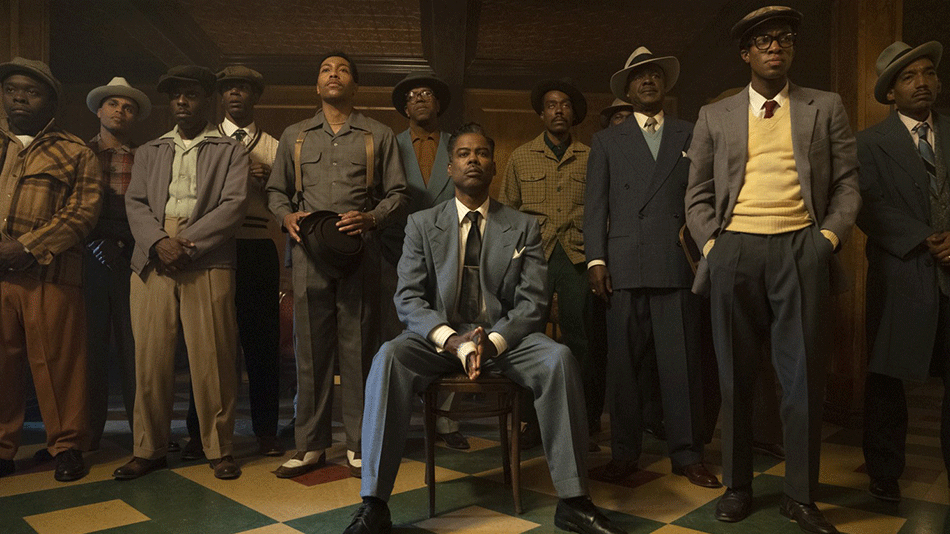Content Giants Say Consolidation Can Wait
Despite Wall Street pressures, big players say there’s no need for deals — for now

The smarter way to stay on top of broadcasting and cable industry. Sign up below
You are now subscribed
Your newsletter sign-up was successful
The pressure is mounting for programmers, in the wake of the pending $43 billion merger between AT&T’s WarnerMedia and Discovery and Amazon’s $8.45 billion purchase of movie studio MGM, to look for similar hookups. But even as some stocks have risen along with hopes for a stream of big deals, most are telling investors they will resist the temptation.
Warner Bros. Discovery, as the new venture will be named, will be a streaming and linear content powerhouse with more than 30 iconic brands, including CNN, HBO, HGTV and Food Network. While the pairing will likely help drive up affiliate fees for those networks — at least for the short term — the long-term benefit from the deal is expected to be in streaming video. HBO Max, launched about a year ago and with around 44 million subscribers, should get an added boost from Discovery’s own streaming offering, Discovery Plus, which has about 11 million subscribers to its mostly reality-based programming.
Amazon said on May 26 that it would buy MGM in a deal worth $8.45 billion, bringing iconic film content like the James Bond franchise, as well as streaming and linear TV series like The Handmaid’s Tale and Fargo into the online retailer’s fold. Most analysts see the deal as a way for Amazon to quickly bolster its content library, and subsequently its Amazon Prime Video subscriber rolls.
Heavying Up for the Arms Race
Several analysts have speculated that those deals will beget others. In a research note earlier this month, Wells Fargo media analyst Steven Cahall wrote that he expects ViacomCBS to at least explore monetizing its Paramount and CBS TV studios, as scaled production operations are considered “rare gems” in today’s climate.
“DTC is a content arms race, and scale is most necessary,” Cahall wrote.
Investors apparently believe the same. Stocks for small and large programmers all have risen in the three weeks after the Warner-Discovery unveiling on May 17. The biggest gains were at Lionsgate Entertainment, the movie studio that also serves as home to premium channel Starz, up about 20%, followed by AMC Networks, up about 16% and ViacomCBS up 10%. The Walt Disney Co., which owns industry-leading streaming service Disney Plus, saw its stock rise about 4% in the weeks after the Warner-Discovery deal.
Lionsgate Entertainment CEO Jon Feltheimer said during its May 27 conference call with analysts to discuss fiscal Q4 results that the WarnerMedia and Amazon deals are a “resounding affirmation” of the continued value of content, IP and brands, but said he didn’t want his company to get distracted by the “concept of scale.”
The smarter way to stay on top of broadcasting and cable industry. Sign up below
Feltheimer was a bit miffed that its Starz premium offering, with about 30 million subscribers, was being called a “niche service” in articles speculating about future M&A.
“We don’t think 30 million subscribers is a niche service,” he said, adding that the goal is to make Starz a market leader in premium content.
“And that’s how we’ll build our value,” Feltheimer continued. “So obviously, we talked to everyone, we listened to everything, but our main job right now is to create outsized value. And the way we’re going to do that is by keeping our head down, having all of our businesses talk to each other 10 times a day, which is what they do.”
Comcast’s Options
Comcast, which owns NBCUniversal as well as the largest traditional cable distribution arm in the country, has been under pressure to spin off its content arm to unlock value. While that could still happen, Cahall wrote that Comcast has three choices: selling/merging its studios, getting more aggressive with its Peacock streaming service or doing nothing. In his research note, he said option three would be most likely.
At its annual meeting of shareholders on June 2, Comcast chairman and CEO Brian Roberts said there was no need for a buying spree, adding that the company is “pleased with our talent, our assets, our culture, our resources.”
But Comcast has been no stranger to M&A in the past, and the company was said to be looking at WarnerMedia earlier this year but backed off because of regulatory concerns. While its size may ultimately dictate its options, Roberts said Comcast and AT&T are distinctly different companies with disparate needs.
“What AT&T does sort of speaks for itself,” Roberts said.
Mike Farrell is senior content producer, finance for Multichannel News/B+C, covering finance, operations and M&A at cable operators and networks across the industry. He joined Multichannel News in September 1998 and has written about major deals and top players in the business ever since. He also writes the On The Money blog, offering deeper dives into a wide variety of topics including, retransmission consent, regional sports networks,and streaming video. In 2015 he won the Jesse H. Neal Award for Best Profile, an in-depth look at the Syfy Network’s Sharknado franchise and its impact on the industry.

